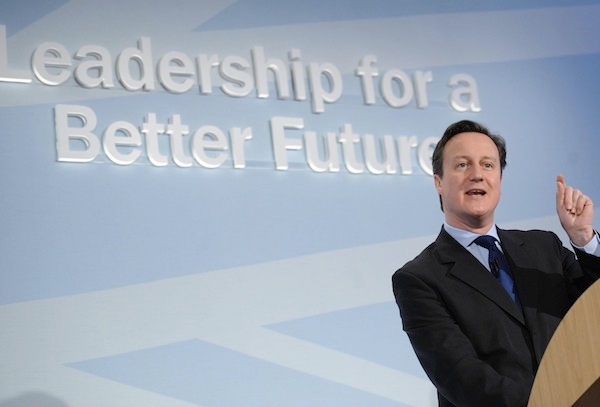Tony Blair asked Labour seven awkward questions this week, ranging from issues that everyone’s talking about to rather more quirky ones that the former Prime Minister would like everyone to talk about, like using advances in DNA to fight crime. It’s the mid-term, when parties start to wonder what they can tell voters they stand for in the next general election, what problems they believe the country is facing, and, more importantly, whether they think they’ve got a hope of solving them. I’ve spent most of today talking to Tory MPs about what they think the seven awkward questions for their own party might be, and here they are, in all their awkward and quirky glory:
1. How do the Tories address public concern on immigration while continuing to be a globalised economy?
Currently the solution from all three parties on this seems to be to give a speech saying ‘it’s OK to be worried about some aspects of immigration and for too long we haven’t been worried about this in Westminster’, while re-announcing Labour’s social housing allocations guidelines from 2009 as a ‘tough new policy on migrants’ to show that Westminster is finally taking the issue seriously. Those who campaigned in the Eastleigh by-election said nearly every issue on the doorstep boiled down to a worry about immigration, but how does the government address this without damaging the economy by restricting access for those who can contribute a great deal?
2. How does the government avoid hitting the 90% debt to GDP ratio?
It is currently forecast to peak at 85%, and economists warn that 90% is the point at which growth is seriously affected. The Tory MP who raised this said they believed that while the focus is obviously on trying to get good enough GDP figures far away enough from the general election to be able to foster some good feeling in the electorate, this threat was the bigger problem in the long-term.
3. Is the level of savings required deliverable if we continue to ringfence big sections of spending?
Blair asked a similar question of his own party, hinting that it should have a good think about pensioner benefits. Obviously the Conservative party has its hands tied by the ‘read my lips’ promise that David Cameron made in 2010, but can it really promise to maintain ringfences on health and education post-2015?
4. What is the party’s moral mission?
This is a big problem, and ties up the question, repeated over and over again from Tory MPs in a variety of different constituencies. What do we stand for? How do we show those who are doing the right thing that we give a damn? The Left is excellent at this: Robert Halfon explained the difference between the two sides of the political spectrum when he told a fringe meeting at the Tory conference that he envied socialists for their simple message.
5. How can the party drive home its achievements over the past few years to voters so they are aware of them by 2015?
Today’s party political broadcast was an example of this, and spinners are currently much more interested in trumpeting achievements rather than new announcements. One Tory MP said to me: ‘The fox knows many things. The hedgehog knows one big thing. We need to ask what our ‘one big thing’ is instead of spewing out ‘messages’ the whole time.’
6. How can the Conservatives use technology to broaden their base and widen their appeal?
Seb wrote a nice piece about how they’re trying to do this when the Eastleigh by-election ran. But the party also needs to beware that in thinking about this point, it doesn’t forget about points 4 and 5. As Fraser warns in his Telegraph column today, getting too excited about knowing everything about swing voters can lead a party down the path of forgetting to talk to anyone else.
7. How does the party deal with its Northern problem?
In between the noise of people who were never going to agree disagreeing about Thatcher this week emerged one serious question: how do the Tories deal with her legacy in the North? Even if things are brighter than they seem, the party has a serious communications mission to get on with. The party also has a possible Mitt Romney problem. 42% of voters say they would never vote Tory. It needs to work out how it can address this, rather than just assuming, like Romney did, that they never will.
P.S. The idea of seven awkward questions for the Tories was gifted to me by the excellent and thoughtful Craig Woodhouse of the Sun on Sunday. He’s always posing awkward questions for all political parties in his stories.







Comments